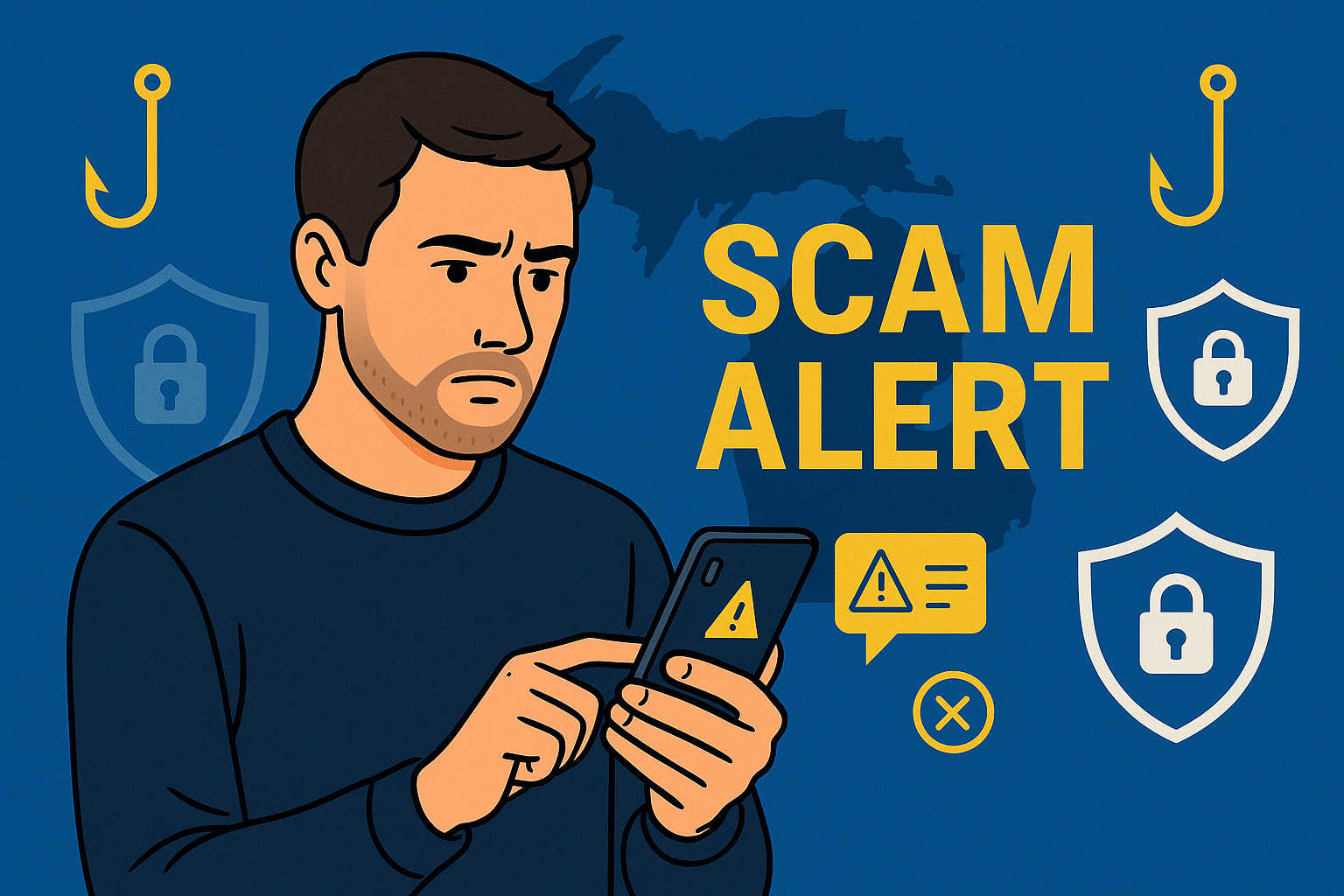
The Michigan Treasury has issued a fresh alert over smishing scams (fraudulent text messages) aimed at stealing personal or financial information. State officials say phishing attacks are growing more frequent, with criminals posing as government agencies to trick people into giving up bank accounts, login credentials, or other details.
Smishing attacks—the “short message service” version of phishing—often arrive as urgent texts. They may look like they’re from the Treasury, the IRS, or even a reputable company. The goal: get people to click links, confirm account numbers, or share sensitive information. Some messages claim the victim owes money or must take immediate action.
The scams don’t stop with texts. Phishing emails circulate year-round, while voice phishing schemes involve fake phone calls or automated voice communication. In both, scammers pretend to be from legitimate organizations, pressuring people to hand over credit card numbers, banking information, or login credentials. In some cases, clicking through leads to malicious links that install harmful software or trick users into downloading malware on their mobile devices.
Authorities highlight a few warning signs taxpayers should recognize:
Anyone falling for a phishing scam risks identity theft and exposure of bank accounts. Once scammers gain access, stolen data—from passwords to account numbers and credit card numbers—can be used to file fraudulent returns or drain funds. Victims may also face hidden malware that slips past spam filters and weakens device security.
The rule of thumb: legitimate organizations like the Michigan Treasury or IRS don’t send random text messages, surprise phone calls, or unexpected emails asking for sensitive information. Standard communication comes through regular mail. If a message pushes for banking information or quick payment, officials say, treat it as a red flag.
The IRS recently flagged smishing scams in its “Dirty Dozen” list of tax schemes. Deputy State Treasurer Kavita Kale put it plainly: “Always examine the calls, emails, and texts you receive to ensure they’re from a verified source. Scammers will take advantage of life situations and look for those brief moments when we let our guard down.”
Officials stress simple steps can make a difference. If a suspicious message shows up, don’t respond, don’t click links, and don’t share banking information, account numbers, or credit card numbers. Instead, delete it, block the number, and report it as spam by forwarding it to 7726.
Adding protection helps too: turn on multifactor authentication for accounts, keep software updated, and use spam filters on mobile devices. These measures make it harder for scammers to trick users or install software like malware. When in doubt, contact the agency directly using the official phone number. Following that example ensures every consumer can stay aware and better protect their data.